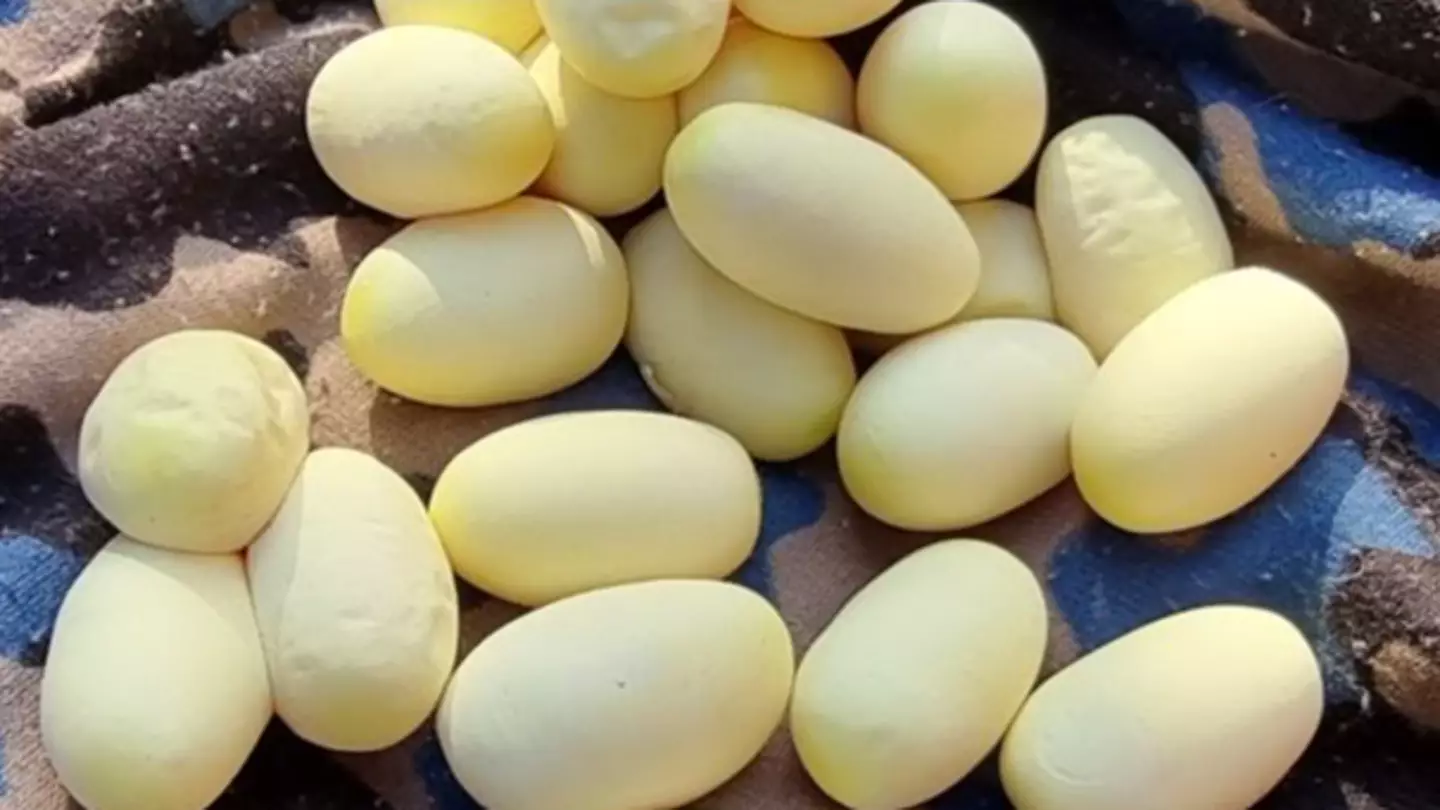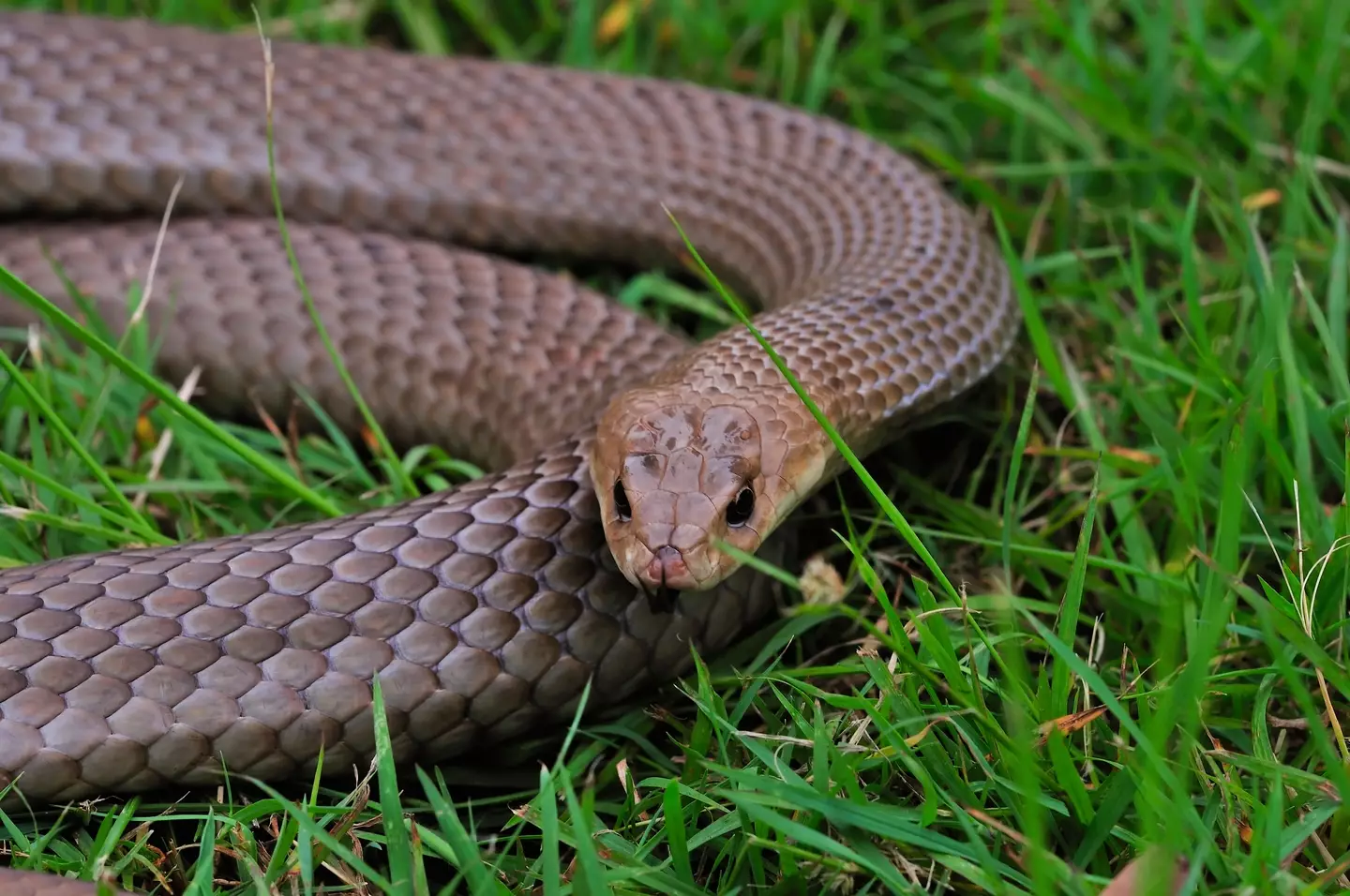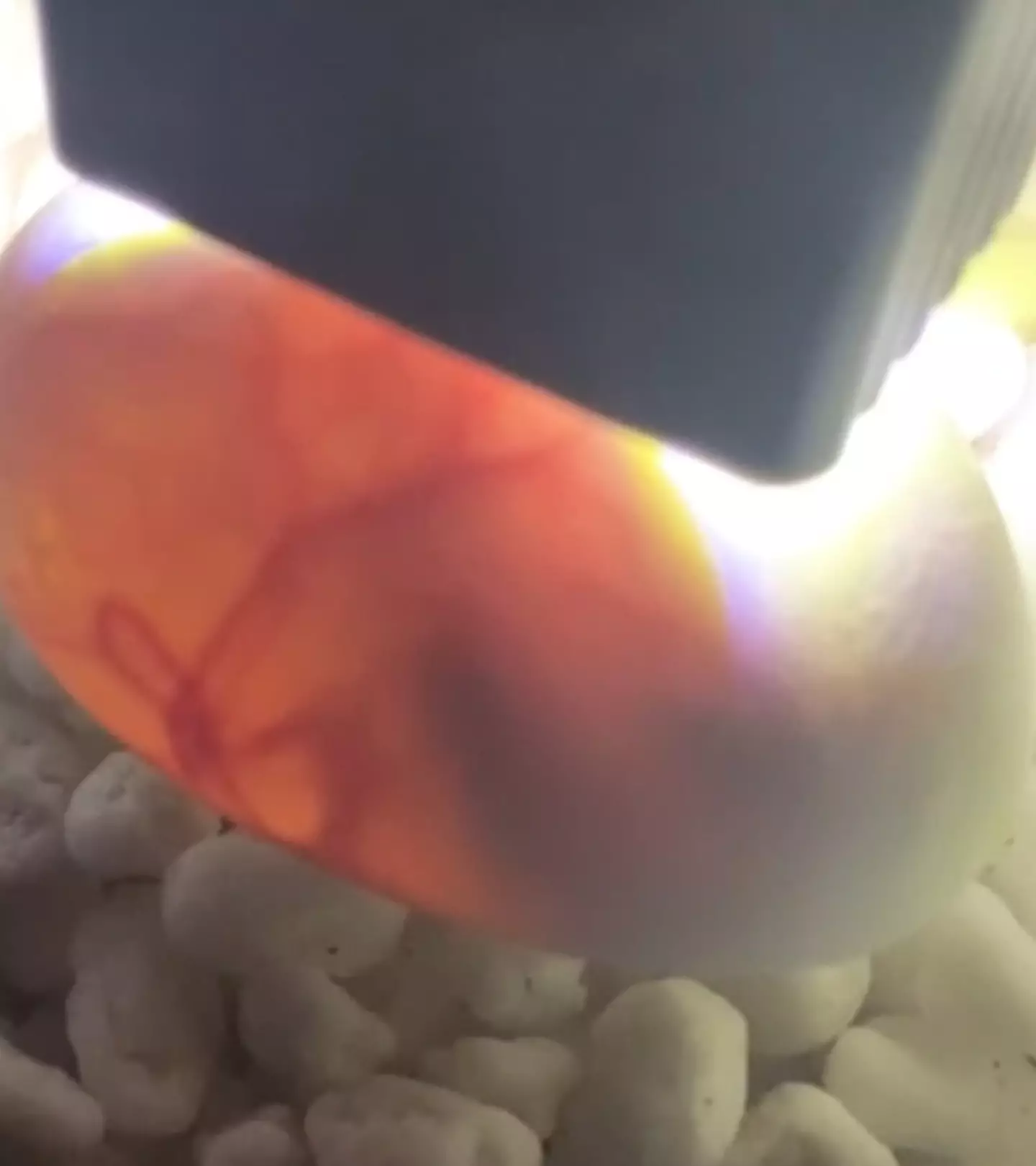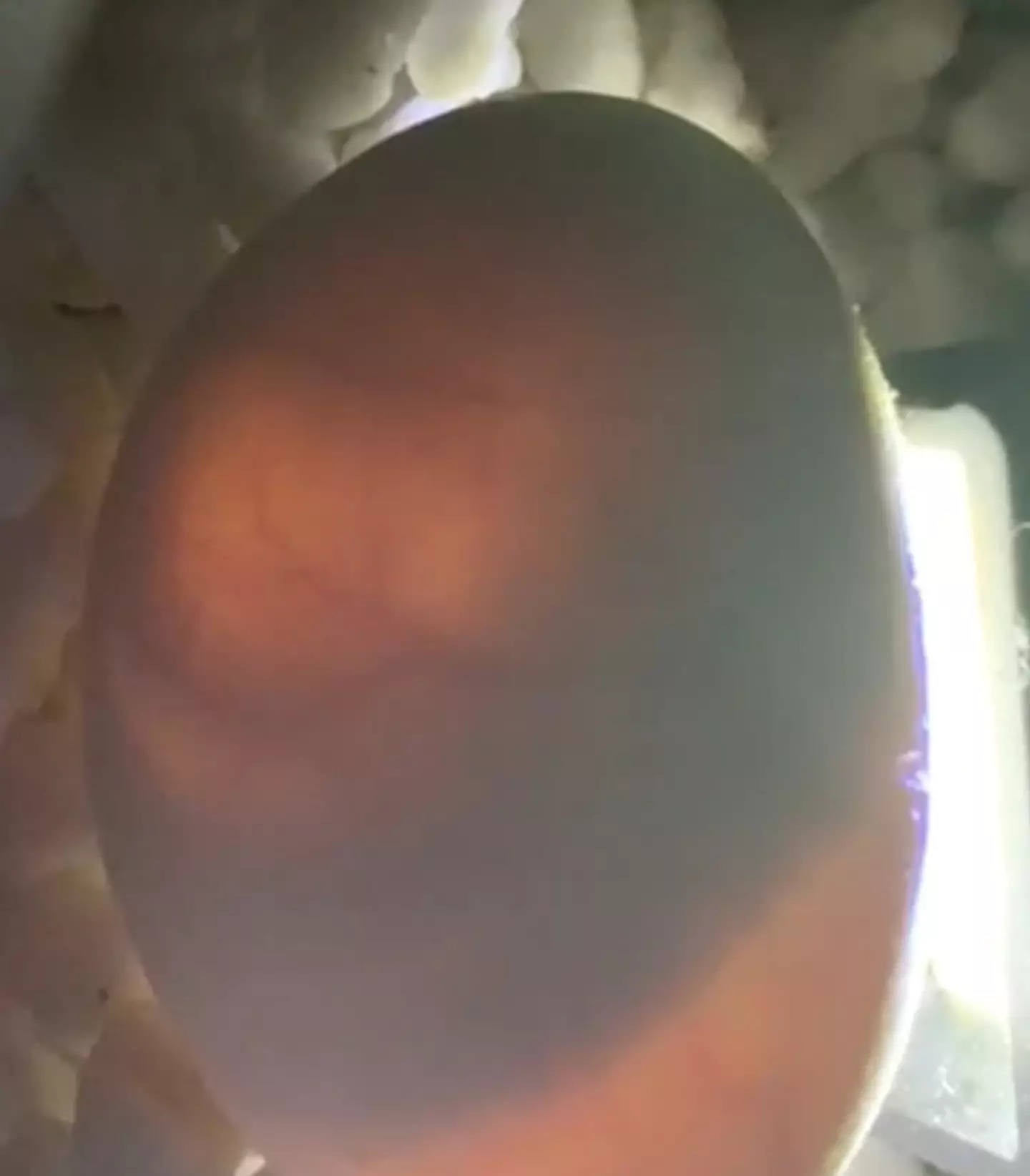
Fascinating photos show what’s lurking inside collection of ‘rare’ eggs, with a clear outline of eastern brown snakes – one of Australia’s most venomous animals.
The eggs were ‘gifted’ to Sean Cade, a snake catcher in New South Wales, at the beginning of the year.
At the time, he told Nine News how he had become a surrogate mother to the ‘23 perfect eggs’, describing the event as ‘rare’.
Cade, who is the owner of Australian Snake Catchers, had removed a six-foot reptile from a home in Emu Heights, a Sydney suburb, but had to wait until daylight to release her – only to be surprised to find the eggs left in the bag.
Advert

"It was pretty weird," Cade told the outlet.
"She left behind the gift of life.
"It does happen from time to time but it is rare. We will see how they turn out in around 60 days or so."
And now, Cade has shared an update on the baby snakes, saying they’re ‘doing well’.
Advert
He told Nine News that the eggs are slated to hatch ‘sometime in March’, and that he’s got a friend who’s currently acting as a stand-in auntie.

He said: "She has got the incubator.
"She's misting them. Snake eggs are leathery and soft, not rock hard like a bird egg, so they need moisture.”
Australia is currently nearing the end of snake season, which runs from mid-September to March.
Advert
Cade said the wild eastern brown snakes leave their eggs once laid, with 16 considered an average clutch side.
But of the 23 eggs laid, only around six look like they’re going to hatch.
Although Cade added: "Six is good, if I can save one of these eggs that's a good result in my book.”

The Billabong Sanctuary says that 'the most venomous snakes in the world live in Australia', continuing: “One of these is the eastern brown snake, rated by most standards as the snake with the second most toxic venom in the world.”
Advert
It says that in spite of this, snake bite fatalities in Australia as ‘actually very rare’.
However, one bite from an eastern brown snake can cause cardiac arrest, which obviously isn't ideal.
“More people get killed in this country by honeybees than by venomous snakes!” the sanctuary added.
Cade said the snakes will be too fragile to milk for the state’s anti venom programme when they’re born, so instead they’ll have to be returned to the wild.
"That's where they belong," he said, explaining how the babies are just as venomous as the adult snakes.
Advert
"It's unfortunate how I came to have them in having to rescue the mum in the first place. They're an important part of the ecosystem."